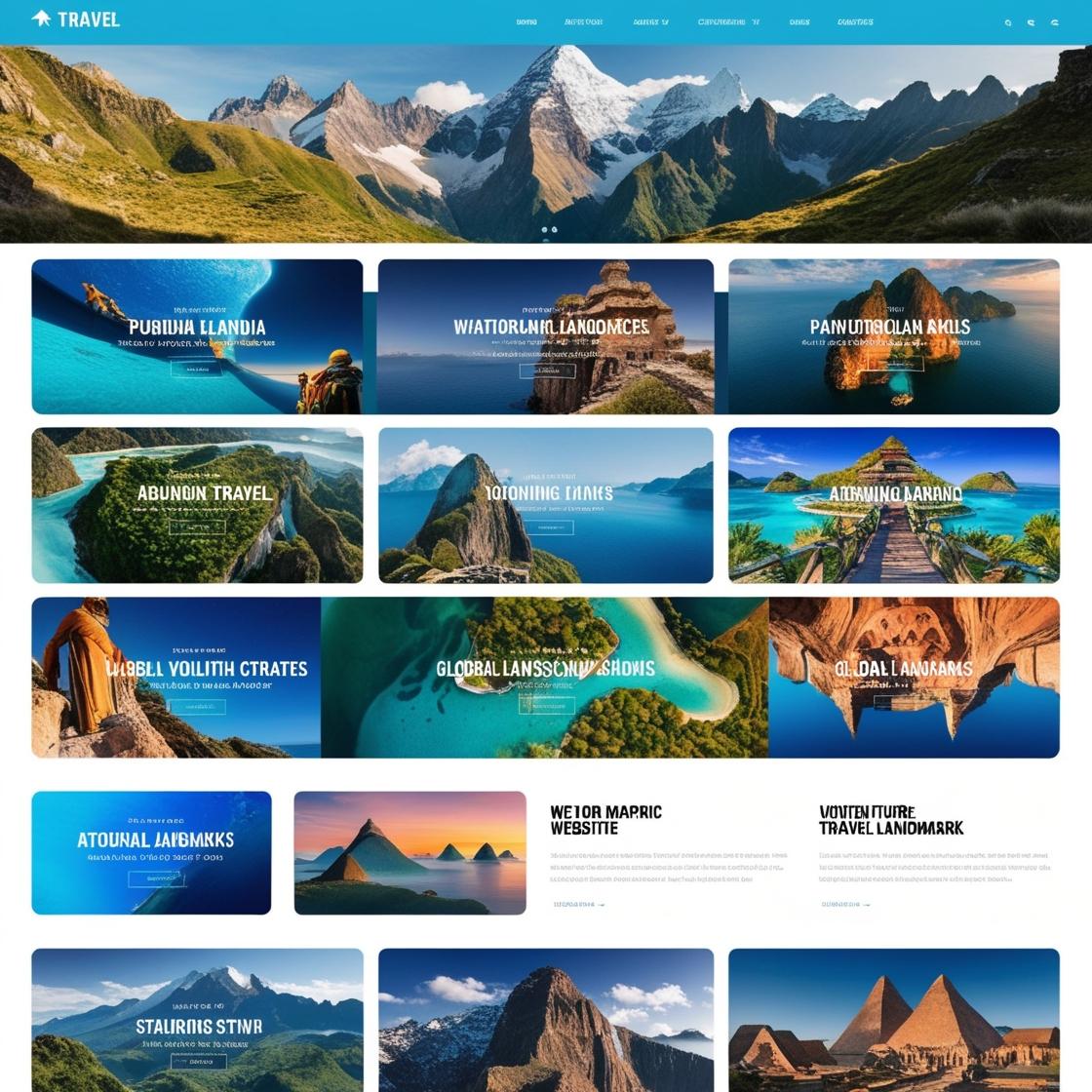Travel comparison websites have become essential tools for modern travelers, helping them find the best deals on flights, hotels, car rentals, and vacation packages. These platforms don’t just serve consumers; they also offer a lucrative opportunity for entrepreneurs to earn revenue through affiliate marketing.
By partnering with affiliate programs, travel comparison sites earn commissions for every booking or lead generated through their referral links. In this guide, we’ll explore how to monetize a travel comparison site using affiliate programs, including choosing the right programs, optimizing your site, and driving traffic for maximum revenue.
1. Understand How Affiliate Programs Work for Travel Comparison Sites
Affiliate marketing is a performance-based model where businesses reward affiliates (like your travel site) for driving traffic or sales through referral links. For travel comparison sites, this means you promote travel services—such as hotels, flights, or car rentals—and earn a commission whenever a user makes a booking or completes an action via your link.
Why this model works for travel comparison sites:
- Travel services often have high transaction values, leading to higher commissions.
- Travelers actively seek out comparison tools, making them more likely to click and convert.
- The recurring demand for travel ensures steady traffic and potential revenue.
2. Choose the Right Travel Affiliate Programs
Selecting the right affiliate programs is crucial for monetizing your site effectively. Different programs cater to various segments of the travel industry, so your choice should align with your site’s niche and audience.
Top Travel Affiliate Programs
Booking.com Affiliate Partner Program
- Offers competitive commissions for hotel bookings.
- Provides tools like widgets, banners, and deep links to integrate with your site.
Expedia Affiliate Program
- Covers hotels, flights, vacation packages, and car rentals.
- Ideal for comprehensive travel comparison sites.
Skyscanner Affiliate Program
- Specializes in flight comparisons with access to global airline data.
- Offers an API for seamless integration.
TripAdvisor Affiliate Program
- Earns commissions on bookings for hotels, attractions, and restaurants.
- Leverages its trusted brand to improve conversions.
Travelpayouts
- A dedicated affiliate network for travel programs.
- Includes partners like Kiwi.com, Aviasales, and Hotellook.
What to Look for in a Travel Affiliate Program
- Commission Structure: Choose programs with competitive payouts, ideally between 5%–10% for bookings.
- Cookie Duration: Longer cookie durations allow users to book later while still crediting your commission.
- Support and Tools: Look for programs that provide APIs, widgets, and banners to enhance your site’s functionality.
- Brand Reputation: Partner with trusted brands to build credibility and boost conversions.
3. Build a User-Friendly Travel Comparison Website
A well-designed website is the foundation of a successful travel comparison platform. Users must be able to easily search for, compare, and book travel services through your site.
Key Features of a Travel Comparison Site
Search and Filter Options:
- Enable users to search by destination, dates, price range, and amenities.
- Use an affiliate program API to fetch real-time data from partners.
Comparison Tools:
- Display side-by-side comparisons of flights, hotels, or car rentals.
- Include detailed information such as pricing, user reviews, and availability.
Responsive Design:
- Ensure your site is mobile-friendly, as many travelers research and book via mobile devices.
Fast Loading Speeds:
- Slow websites lead to higher bounce rates and lower conversions.
Clear Call-to-Actions (CTAs):
- Use prominent CTAs like “Compare Prices” or “Book Now” to encourage clicks on affiliate links.
Recommended Tools for Building Your Site
- CMS Platforms: WordPress with travel-friendly themes like Travelify or Love Travel.
- Plugins: Use affiliate link managers (e.g., ThirstyAffiliates) and table builders (e.g., TablePress) to organize comparisons.
- APIs: Integrate APIs from affiliate partners to display real-time data on flights, hotels, or rental cars.
4. Optimize Your Content for Conversions
Content plays a critical role in driving traffic and encouraging users to book through your affiliate links. Your site should offer valuable, engaging, and optimized content tailored to your audience’s needs.
Content Ideas for Travel Comparison Sites
Destination Guides:
- Write detailed guides on popular destinations, highlighting the best hotels, activities, and transportation options.
- Include affiliate links to book hotels, tours, or rental cars.
Price Comparison Articles:
- Create posts comparing flights, hotels, or packages (e.g., “Best Budget Airlines for Europe Travel”).
- Use screenshots or tables to visualize price differences.
Travel Tips and Hacks:
- Share advice on saving money, packing efficiently, or traveling safely.
- Embed affiliate links for related services like travel insurance or luggage rentals.
Seasonal Campaigns:
- Target specific travel seasons, such as summer vacations or holiday getaways.
- Promote limited-time deals and discounts available through affiliate programs.
SEO Optimization Tips
- Keyword Research: Use tools like SEMrush or Google Keyword Planner to find high-volume, low-competition keywords.
- On-Page SEO: Include keywords in titles, meta descriptions, headers, and image alt text.
- Internal Linking: Link to relevant content within your site to keep users engaged.
- Backlink Building: Reach out to travel bloggers or forums to share your site and earn backlinks.
5. Drive Traffic to Your Site
Without consistent traffic, even the best travel comparison site won’t generate revenue. Focus on a mix of organic, paid, and social traffic strategies to attract visitors.
Organic Traffic:
- Publish high-quality blog posts, guides, and reviews regularly.
- Optimize for local SEO if targeting specific destinations.
Paid Traffic:
- Run Google Ads targeting travel-related keywords (e.g., “Cheap Flights to Paris”).
- Use social media ads to promote seasonal campaigns or limited-time deals.
Social Media Marketing:
- Share engaging travel content on platforms like Instagram, Pinterest, and Facebook.
- Use visuals such as photos, infographics, and videos to capture attention.
Email Marketing:
- Build an email list with lead magnets, such as free travel itineraries or packing checklists.
- Send newsletters with travel tips and exclusive deals linked to your affiliate programs.
6. Monitor Performance and Optimize for Success
Tracking your performance is critical for understanding what works and what doesn’t. Use analytics tools to measure your site’s traffic, conversions, and affiliate revenue.
Key Metrics to Monitor
Click-Through Rate (CTR):
- The percentage of users who click on your affiliate links.
- Improve CTR with better CTAs and engaging content.
Conversion Rate:
- The percentage of clicks that result in bookings.
- Test and refine your affiliate links and landing pages to increase conversions.
Traffic Sources:
- Identify which channels (organic, paid, social) drive the most traffic and focus on those.
Revenue by Partner:
- Track which affiliate programs generate the most income and prioritize promoting their offerings.
7. Scale Your Business
Once your travel comparison site starts generating consistent revenue, focus on scaling your efforts to maximize earnings.
Scaling Strategies
- Expand your niche by adding new categories (e.g., cruises or vacation rentals).
- Partner with more affiliate programs to diversify your income streams.
- Invest in advanced SEO tools or hire experts to increase traffic.
- Explore partnerships with travel influencers or bloggers to boost brand awareness.
Monetizing a travel comparison website through affiliate programs is a rewarding opportunity for anyone passionate about travel and digital marketing. By selecting the right programs, optimizing your site for conversions, and driving targeted traffic, you can build a successful platform that benefits travelers while generating a steady stream of affiliate income.
The key to success lies in offering value to your audience through a user-friendly site, engaging content, and trustworthy recommendations. With dedication and smart strategies, your travel comparison site can become a profitable venture in the ever-growing affiliate marketing landscape.

